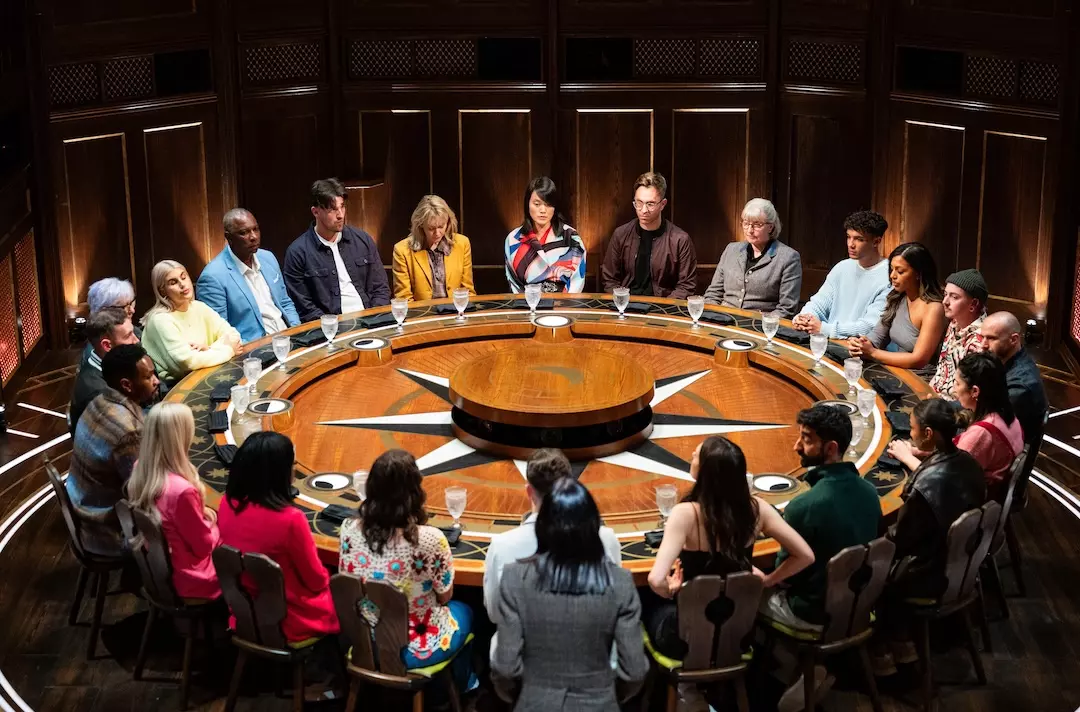18 January 2025
The Traitors: Working together as a team
Ivan Radford

Ivan Radford considers what we can learn about teamwork from The Traitors.
It’s probably a question of when, not if, you’re watching The Traitors. The reality TV show returned this month to five million viewers on BBC One and continues to air its third season every Wednesday, Thursday and Friday. The format is fiendishly enticing: a group of people must work together to build up a prize pot of money, but hidden among them are traitors who eliminate contestants every night. If these traitors remain undetected at the end of the competition, they walk away with all the money themselves.
‘This is the last time you sit here as equals,’ host Claudia Winkleman told the group as they gathered around a table, before she secretly picked a chosen few as traitors. The ensuing web of encouraged deceit and betrayal is, of course, irresistible viewing.
Perhaps that’s why the show is named after the traitors – a show called ‘The Faithfuls’ wouldn’t have the same ring to it. But as the show continues, and tensions rise, the faithfuls are the key: if the group can’t complete the challenges they’re set, there’s no prize money at the end. The only way for anyone to succeed is for everyone to focus on a shared goal.
What is the most important characteristic a traitor should have? ‘I think charm and nous,’ commented Claudia ahead of the show’s return. ‘I used to say that I’d prefer to be a traitor,’ she added, ‘but I actually think it’s harder.’
In real life, the opposite is often the case: it can be all too easy to be distracted by disagreements and much harder to live with difference. As Christians, we are called to embrace our diversity within the unity of the wider Church. We are invited by God to join a game that isn’t rigged with rules that force deceit, but encourages us to find harmony as unique parts of the body of Christ – to sit around the table with our fellow believers as equals.
‘There should be no division in the body,’ Paul reminds us. ‘Its parts should have equal concern for each other’ (1 Corinthians 12:25). Unlike the players in The Traitors, we should avoid being defensive or thinking of ourselves as superior to one another. As well as boldness and passion, our shared values as an Army include compassion, respect, integrity and an accountability that is mutual. As Paul puts it: ‘If one part suffers, every part suffers with it; if one part is honoured, every part rejoices with it’ (v26).
The goal? Not just growing together as disciples, but growing this Kingdom community on Earth. A community rooted in disunity might make for entertaining viewing on BBC One, but one built on sincere love, humility and harmony can be attention-grabbing on a whole different scale. That is what we are called to be: rooted in a shared understanding of God, so that we as the Church reflect that bigger truth to everyone around us and they can see and believe for themselves (see John 17:21).
What’s the most important characteristic you should have as a faithful?
Reflect and respond
- Read John 17:20–26. What do you think is meant by ‘complete unity’?
- Do we make Jesus known to others through our combined words and actions?
- What gifts do other Christians around you have that can help you in working together to the glory of God?
Written by

Ivan Radford
Managing Editor











